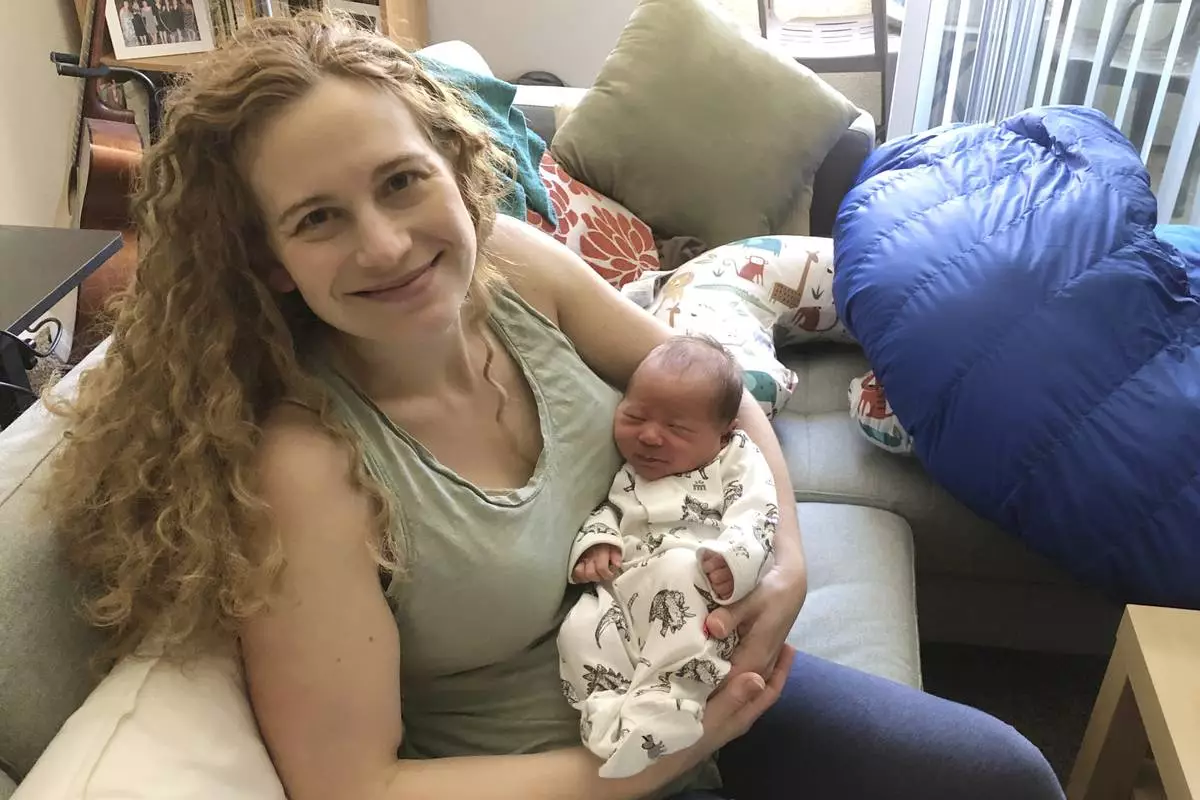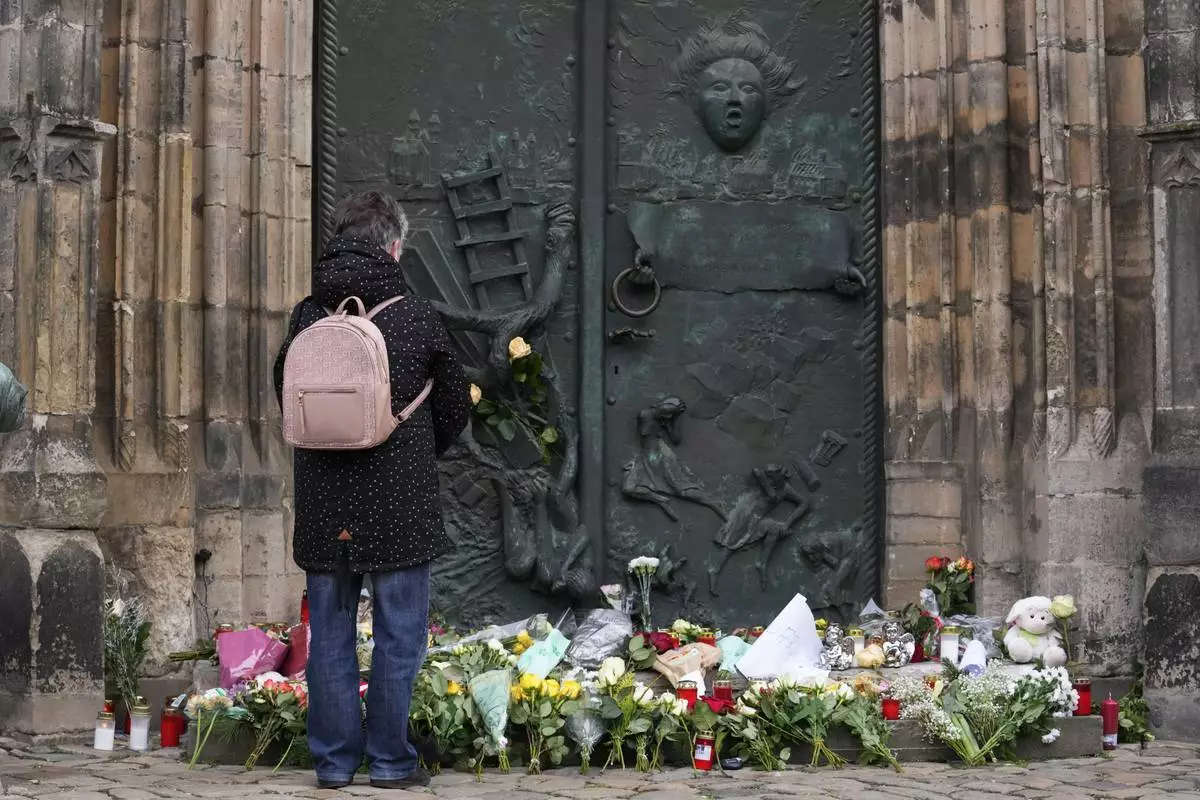Neuroscientist Liz Chrastil got the unique chance to see how her brain changed while she was pregnant and share what she learned in a new study that offers the first detailed map of a woman's brain throughout gestation.
The transition to motherhood, researchers discovered, affects nearly every part of the brain.
Although the study looks at only one person, it kicks off a large, international research project that aims to scan the brains of hundreds of women and could one day provide clues about disorders like postpartum depression.
“It’s been a very long journey,” said Chrastil, co-author of the paper published Monday in Nature Neuroscience. “We did 26 scans before, during and after pregnancy” and found “some really remarkable things.”
More than 80% of the regions studied had reductions in the volume of gray matter, where thinking takes place. This is an average of about 4% of the brain — nearly identical to a reduction that happens during puberty. While less gray matter may sound bad, researchers said it probably isn't; it likely reflects the fine-tuning of networks of interconnected nerve cells called “neural circuits" to prepare for a new phase of life.
The team began following Chrastil — who works at the University of California, Irvine, and was 38 years old at the time — shortly before she became pregnant through in vitro fertilization.
During the pregnancy and for two years after she gave birth, they continued doing MRI brain scans and drawing blood to observe how her brain changed as sex hormones like estrogen ebbed and flowed. Some of the changes continued past pregnancy.
“Previous studies had taken snapshots of the brain before and after pregnancy, but we’ve never witnessed the brain in the midst of this metamorphosis,” said co-author Emily Jacobs of the University of California, Santa Barbara.
Unlike past studies, this one focused on many inner regions of the brain as well as the cerebral cortex, the outermost layer, said Joseph Lonstein, a professor of neuroscience and psychology at Michigan State University who was not involved in the research. It's “a good first step to understanding much more about whole-brain changes that could be possible in a woman across pregnancy and postpartum," he said.
Research in animals has linked some brain changes with qualities that could be helpful when caring for an infant. While the new study doesn’t address what the changes mean in terms of human behavior, Lonstein pointed out that it describes changes in brain areas involved in social cognition, or how people interact with others and understand their thoughts and feelings, for example.
The researchers have partners in Spain and are moving forward with the larger Maternal Brain Project, which is supported by the Ann S. Bowers Women’s Brain Health Initiative and the Chan Zuckerberg Initiative.
Eventually, they hope scientists can use data from a large number of women for things like predicting postpartum depression before it happens.
“There is so much about the neurobiology of pregnancy that we don’t understand yet, and it’s not because women are too complicated. It’s not because pregnancy is some Gordian knot,” Jacobs said. “It’s a byproduct of the fact that biomedical sciences have historically ignored women’s health.”
The Associated Press Health and Science Department receives support from the Howard Hughes Medical Institute’s Science and Educational Media Group. The AP is solely responsible for all content.

In this photo provided by Liz Chrastil, a neuroscientist with the University of California, Irvine, she her holds her newborn son in May 2020. (Courtesy Liz Chrastil via AP)










